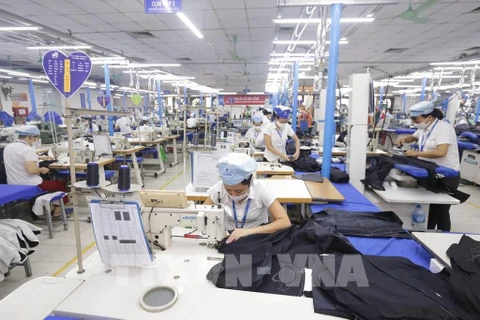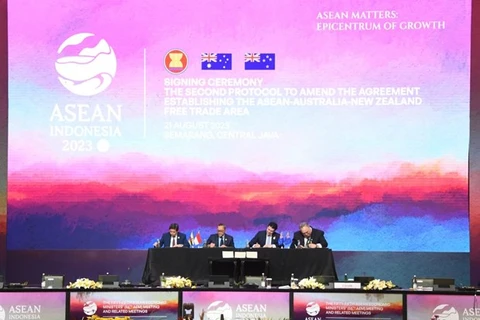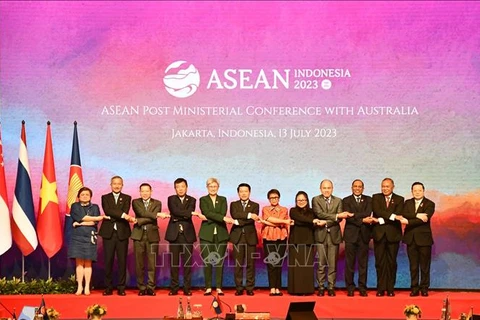 Australian Prime Minister Anthony Albanese unveiled "Invested: Australia’s Southeast Asia Economic Strategy to 2040 at the ASEAN Indo-Pacific Forum in Jakarta. (Photo: AFP/VNA)
Australian Prime Minister Anthony Albanese unveiled "Invested: Australia’s Southeast Asia Economic Strategy to 2040 at the ASEAN Indo-Pacific Forum in Jakarta. (Photo: AFP/VNA) Kuala Lumpur (VNA) - Australia has identified four key sectors with the highest potential growth to further deepen economic cooperation with Malaysia under its “Invested: Australia’s Southeast Asia Economic Strategy to 2040”.
The four sectors are agriculture and food, resources, education and skills, and digital economy.
Currently, Australia is a major supplier of food to Malaysia, with an estimated 10% of Malaysia’s dairy, 25% of its imported meat and two-thirds of its imported wheat.
Regarding the resources sector, Australia wants to continue supporting Malaysia’s energy transition plan by deepening institutional partnerships and expanding technical assistance on decarbonisation pathways, and infrastructure funding among others.
Last year, natural gas, copper, and coal were among Australia’s key export items to Malaysia.
As for digital economy, Australia is committed to supporting Malaysia in realising the goal of becoming a high-income country by promoting digital development and application. The two nations signed a Memorandum of Understanding on digital collaboration in 2020 to enhance digital cooperation and reduce barriers to digital trade. They also hoped to include new provisions and collaborations in the digital and green economies in the Malaysia-Australia Free Trade Agreement.
Regarding vocational education and training, Australia and Malaysia have pledged to speed up cooperation relating to online tertiary education delivery.
Australia is Malaysia's 7th largest trading partner while Malaysia is the former's 8th largest trading partner in goods and services. Last year, two-way trade between the two countries was valued at 21.4 billion USD and two-way investment totaled 19.15 billion USD.
The strategy was launched by Australian Prime Minister Anthony Albanese at the ASEAN Indo-Pacific Forum in Jakarta on September 6 on the sidelines of the ASEAN Summit. It identified 10 priority sectors offering the most potential for economic growth, including agriculture and food, resources, green energy transition, infrastructure, education and skills, tourism, healthcare, digital economy, professional and financial services, and creative industries./.























